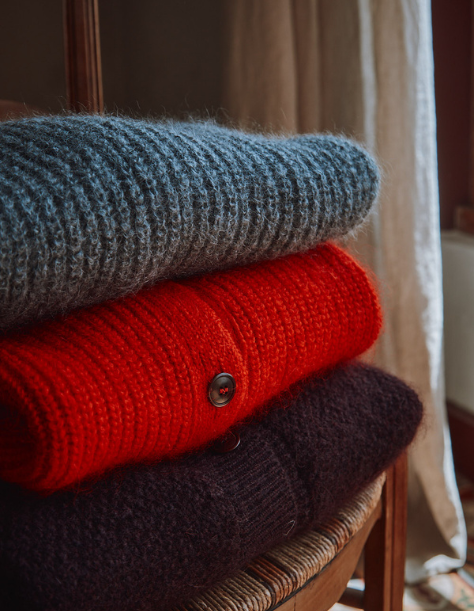HOW TO IDENTIFY TRULY SUSTAINABLE PRODUCTS : WHAT SHOULD YOU LOOK FOR AND HOW CAN YOU AVOID GREENWASHING?

Recognizing eco-friendly products has become increasingly important in a world where caring for nature matters more than ever. As people now look for environmentally friendly alternatives, it is essential to know what truly makes a product sustainable. Beyond clever marketing campaigns, genuinely eco-friendly items are those made with recycled or renewable materials, designed to reduce plastic waste, carbon emissions, and overproduction. By understanding these concepts, you can make conscious choices that support both a greener future and a fairer global economy.
In this guide, we will help you identify the essential qualities of sustainable products. We’ll explore how to assess business practices, examine eco-friendly product development and packaging, and evaluate reduced environmental impacts across the entire product lifecycle.
Understanding What Makes a Product Sustainable
When searching for products that are kind to our planet, it’s important to look beyond labels and advertising buzzwords. A product marketed as “green” is not always genuinely sustainable. According to the European Commission, real sustainability is rooted in transparency, lifecycle management, and ethical practices.
Eco-friendly items often use natural or renewable fibers, such as organic cotton, hemp, yak wool, or linen, that can biodegrade without leaving toxic residues. They may also incorporate recycled components, which lower waste and promote circularity in the economy. These materials typically require fewer resources to produce, reducing water usage and carbon emissions compared to synthetic alternatives like polyester.
Sustainable business practices also include plastic-free packaging, energy-efficient production, and the use of renewable energy sources. Importantly, sustainability extends to the supply chain: from sourcing raw fibers responsibly to ensuring workers are treated fairly.
At L'Envers, every garment is thoughtfully crafted with organic cotton or natural wool using processes designed to minimize waste. This reflects our ongoing commitment to a sustainable future.
If you want to make a real impact, learning to identify products with strong eco-credentials and reliable certifications is a crucial first step.
Key Certifications to Look for in Sustainable Products
When evaluating eco-friendly products, certifications provide trust and assurance. They demonstrate that an item complies with rigorous sustainability and ethical standards. While not every sustainable product carries a certification, looking out for these labels can guide you toward brands that truly prioritize the planet:
- Global Organic Textile Standard (GOTS): Ensures textiles are produced with certified organic fibers, free of harmful chemicals, and processed in socially responsible factories.
- Fair Trade Certified: Guarantees fair wages and safe working conditions across supply chains, particularly in developing countries.
- B Corp Certification: Recognizes companies that balance purpose and profit, measuring social and environmental impact as part of their core mission.
- Cradle to Cradle Certified: Evaluates the entire lifecycle of a product, from safe materials and renewable energy to water stewardship and social fairness.
These certifications point to authentic sustainability—goods produced with low emissions, renewable resources, and respect for people and the planet. At L’Envers, all our cotton yarns are GOTS certified, a reflection of our strong sourcing standards.
Top Tips for Making Informed Sustainable Purchases
Buying eco-friendly products greatly supports the planet, but it requires some awareness and research. Here are actionable tips to help you recognize truly sustainable products:
Think About the Carbon Footprint
Consider how a product was produced and transported. Brands that embrace renewable energy, avoid unnecessary logistics steps, and reduce waste in packaging have a smaller carbon footprint. At L’Envers, all orders ship directly from our Spanish atelier to minimize unnecessary transportation emissions.
Check the Supply Chain and Production Methods
Responsible brands are transparent about sourcing, labor conditions, and environmental impact. Supporting them strengthens fair trade and creates ripple effects in the global economy. You can check resources like Good On You for ratings of fashion brands’ sustainability practices.
Be Aware of Greenwashing
Some companies misuse words like “eco,” “green,” or “sustainable” without providing proof. A study by the EU revealed that more than half of green claims made by companies were vague or misleading. Genuine brands provide clear details about materials, certifications, and environmental impacts.
Practical Steps for Conscious Consumers
Here are a few simple yet powerful steps you can take to shop more responsibly:
- Do Your Research: Use consumer guides and NGOs like Fashion Revolution to understand a brand’s impact.
- Engage with Brands: Don’t hesitate to ask companies questions about sourcing and production. Transparency is a hallmark of sustainable businesses.
- Choose Local When Possible: Supporting local artisans and businesses cuts down transport emissions and bolsters community economies.
- Invest in Quality: Buy fewer, higher-quality products designed to last. This reduces waste and saves money in the long run.
- Repair and Reuse: Extend the life of items by mending, repurposing, or upcycling—principles central to the circular economy.
Conclusion
Identifying truly sustainable products requires both diligence and curiosity. By focusing on materials, certifications, production processes, packaging, and social responsibility, consumers can make informed choices that align with their values. Products made with natural, recycled, or renewable materials contribute not only to environmental sustainability but also to social equity.
Supporting companies that prioritize sustainable practices—whether through ethical labor, eco-friendly designs, or renewable energy use—creates demand for positive change across industries. At L’Envers, we remain committed to producing timeless garments crafted with responsibility and care.
By opting for sustainable choices and sharpening your ability to recognize greenwashing, you can ensure that every purchase becomes an act of climate action. As the United Nations highlights, conscious consumption is directly linked to achieving the Sustainable Development Goals.
Ultimately, sustainable shopping is not about perfection—it’s about progress. Each mindful purchase brings us one step closer to a healthier planet for future generations.
FAQ
Look for certifications like GOTS, Fair Trade, and OEKO-TEX to ensure your knitwear is genuinely sustainable and ethical.
Avoid brands that use vague claims like “eco-friendly” without proof; instead, check for transparency and material sourcing details.
Transparency shows how and where garments are made, ensuring that the clothing you buy supports ethical and sustainable practices.
FREE SHIPPING
from 300€ to Europe, from 320€ to North America, UK, Swiss, from 360€ to Asia
FLEXIBLE EXCHANGE AND RETURNS
within 30 days
3-PART PAYMENTS
with SplitIt
CUSTOMER SERVICE
Contact Us for advice and customization


